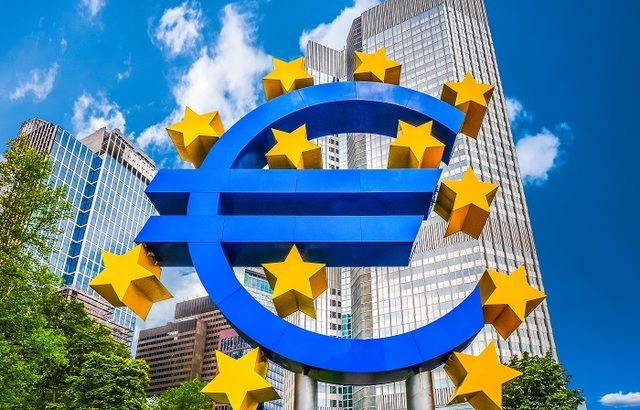The ECB finds itself caught between a strengthening economy on the one hand, and low inflation and an appreciating currency on the other. “In Europe, all eyes are now on the ECB’s September meeting [this Thursday], but the ECB has very little room for manoeuvre,” said Andrea Iannelli, investment director fixed income at Fidelity.
“Personally, I think the ECB is willing to let the stimulus run for a lot longer than many people think,” Frank Reisbol, managing director at Banque Carnegie in Luxembourg, told Expert Investor.
“There has been some sustained improvement in macro conditions, but I’m not sure it’s possible to switch support back on once you have started to withdraw it.” That’s another reason for the ECB to tread carefully, Reisbol adds.
Euro strength
The recent appreciation of the euro, up more than 11% against the dollar in the past six months, has only served to further constrain the ECB’s options. Arguably, the common currency has risen on the back of stronger than expected growth in the eurozone and a dramatic easing of political risk since the ascendance of Emmanuel Macron to the French presidency.

European monetary policy hasn’t yet been a factor in it, with ECB-president Mario Draghi having remained extremely tight-lipped over the summer, especially after his comments in Sintra led to an exaggerated market response. Will this change on Thursday?
“Hopefully the waiting is nearly over. There is an expectation that Mr Draghi will on Thursday signal the ECB’s intention to start tapering asset purchases in 2018, but we think little detail is likely. Decisions regarding pace or changes of the composition of the program are likely to delayed to later in the year,” said Sandra Holdsworth, co-manager of the Kames Absolute Return Bond Global Fund.
And the reason for that could well be the German parliamentary elections later this month, she thinks: “There is no secret about the shortage of Bunds available for the ECB to buy if its current buying patterns are maintained, and reducing the overall amount may still not be enough to alleviate this shortage.”
To continue asset purchases past 2018 as expected albeit at a reduced pace, the ECB’s purchasing programme may have to deviate further from the ECB’s capital key splits. “In practice, this would mean the amount of Bunds bought would be reduced and the amount of French and Italian bonds bought would be increased,” says Holdsworth. “Quantitative easing, never very popular in Germany anyway because of the perceived risk that it was being used to bailout weaker nations, is unlikely to become more popular with a move like this.”
US-Europe convergence
And the ECB has more reasons not to delay a change in course too far into the future, says David Zahn, head of European fixed income at Franklin Templeton. Considering the rapid strengthening of the eurozone economy, the ECBs easing stance looks increasingly out of place, he contends, especially if you compare with the US.
“In our view, the ECB needs to consider its approach to QE, not least because of the increasing similarities between the trajectories of the eurozone and the US,” said Zahn. Inflation, growth and even employment trends are “strikingly similar” in both economies, he adds.
“Against that background, one might justifiably ask whether it makes sense to have one economy (the United States) in a tightening monetary policy cycle, while the other (eurozone) presses on with its more accommodative easing programme.”
“To be clear, we’re not suggesting the ECB should start tightening, but we do think it needs to start winding down the amount of QE it has been undertaking,” he concludes.
Perhaps that’s the least we can expect from Mario Draghi: some vague commitment that QE will be reduced next year. But don’t expect any details, yet.







